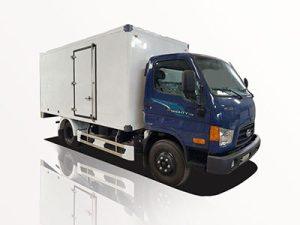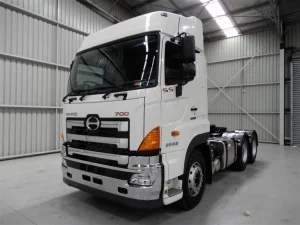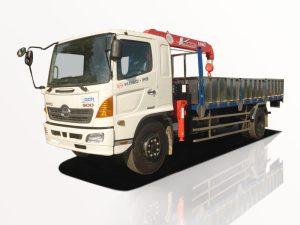Monday to Saturday - 8:00 -17:30
Exploring the World of Small EV Trucks: A Comprehensive Guide
Introduction
The demand for electric vehicles (EVs) has surged in recent years, and small electric trucks are at the forefront of this movement. These vehicles are ideal for city dwellers, small business owners, and environmentally-conscious consumers looking for a sustainable transport solution. In this article, we will delve into everything you need to know about small EV trucks, including their benefits, popular models, and what to consider when purchasing one.
What Are Small EV Trucks?
Small electric trucks are compact pickups designed to offer the functionality of a traditional truck while running entirely on electricity. With zero tailpipe emissions, these vehicles contribute to reducing air pollution and are often more cost-effective in terms of operation and maintenance.
The Evolution of Electric Trucks
The shift towards eco-friendly vehicles began with personal passenger cars, but it has now expanded into the truck segment. Historically dominated by gas and diesel options, the truck industry is rapidly adapting to the electric model, with manufacturers innovating to create efficient, reliable, and user-friendly small EV trucks.
Benefits of Small EV Trucks
There are numerous advantages to owning a small electric truck, catering to various professional and personal needs.
1. Environmental Impact
Small EV trucks produce zero emissions, significantly reducing an individual’s carbon footprint. By transitioning to electric, users help combat climate change and support a cleaner planet.
2. Cost Savings
Operating an electric vehicle can lead to substantial savings due to lower fuel and maintenance costs. Owners can save on gas prices, and electric trucks often have fewer moving parts, resulting in lower maintenance expenses over time.
3. Performance and Efficiency
Electric trucks offer impressive torque, which translates into quick acceleration—a crucial feature for city driving. Additionally, they often come equipped with advanced technology for better energy management.
4. Quiet Operation
Small EV trucks operate much quieter than their gasoline counterparts, making them ideal for urban environments where noise pollution is a concern.
5. Incentives and Tax Breaks
Many governments offer subsidies, tax credits, and incentives for purchasing electric vehicles, further making small EV trucks more affordable.
Popular Small EV Trucks on the Market
As the market for small EV trucks expands, several models stand out for their innovation, features, and performance.
1. Ford F-150 Lightning
The Ford F-150 Lightning is the electric version of the best-selling F-150. It offers multiple configurations and a spacious cabin, along with impressive towing capabilities that can handle work-related tasks effortlessly.
2. Rivian R1T
The Rivian R1T is designed for adventure, boasting off-road capabilities and a unique design. Its advanced technology and spacious interior make it suitable for both exploration and daily commutes.
3. Tesla Cybertruck
The Cybertruck, with its futuristic design, has generated buzz across social media platforms. Its robust performance and impressive range are features that set it apart from traditional trucks, appealing to tech-savvy consumers.
4. Lordstown Endurance
The Lordstown Endurance targets commercial users, providing a rugged design especially made for fleet use. Its affordability and practicality make it a notable contender in the small EV truck market.
5. Canoo Lifestyle Vehicle
Canoo’s approach to electric trucks is unique; the Lifestyle Vehicle is versatile for various purposes. With a spacious interior, flexible seating configurations, and an attractive price point, it caters to a wide audience.
Key Features to Consider When Buying a Small EV Truck
Before investing in a small electric truck, it’s essential to evaluate several key features to ensure that it meets your needs.
1. Range
The driving range on a single charge is a critical factor. Look for models that offer at least 200 miles to accommodate daily commutes and occasional longer trips.
2. Towing Capacity
If you plan to use your truck for work or hobbies that require hauling, check the towing capacity and payload ratings. Different models will support varying weight allowances.
3. Charging Options
Evaluate the charging options available for the truck. Understanding home charging capabilities versus public charging networks is key to planning your vehicle use effectively.
4. Size and Comfort
Consider the size of the truck and comfort features, including seating arrangements and cargo space, to ensure it fits your lifestyle seamlessly.
5. Technology and Features
Look for trucks that come equipped with advanced connectivity features, infotainment systems, and safety technologies that enhance the driving experience.
Real-World Applications of Small EV Trucks
Small EV trucks are increasingly being utilized in various sectors, demonstrating their versatility and efficiency.
1. Deliveries and Logistics
Urban delivery services are adopting small electric trucks to reduce emissions while maintaining efficiency. Companies are seeing benefits in reduced fueling costs and improved brand image.
2. Landscaping and Construction
Contractors are using small EV trucks for landscaping and construction projects, taking advantage of lower operating costs and the ability to access busy neighborhoods without disturbing residents.
3. Recreation and Outdoor Activities
Outdoor enthusiasts find small electric trucks perfect for camping or transporting gear due to their impressive torque and load capabilities—all while being environmentally friendly.
The Future of Small EV Trucks
The future looks bright for small EV trucks as technology advances and charging infrastructures improve. Automakers are ramping up production to meet the demand for sustainable vehicles, and many are investing in research and development to enhance battery life, charging speed, and overall performance.
1. Innovations in Battery Technology
Advancements in battery technology, such as solid-state batteries, promise to increase range and reduce charging times significantly, making small EV trucks even more attractive to consumers.
2. Expanded Charging Networks
As more public and private sectors invest in charging stations, the landscape for using electric trucks will become even more user-friendly, alleviating range anxiety and enhancing convenience.
3. Increased Consumer Awareness
With growing awareness of climate change and the impacts of fossil fuel consumption, consumers are increasingly leaning towards sustainable options, making small EV trucks appealing to a wider audience.
Practical Tips for Owning a Small EV Truck
Once you’ve made the investment in a small electric truck, follow these practical tips to maximize your ownership experience:
1. Make Use of Incentives
Research government incentives, grants, or tax credits in your area to reduce the overall cost of ownership.
2. Schedule Regular Maintenance
While EVs generally require less upkeep, regular checks on battery health, tire pressure, and software updates are essential for optimal performance.
3. Utilize Charging Apps
Download apps that help you locate charging stations and monitor charging times to ensure convenience during travel.
4. Plan for Longer Trips
When planning longer journeys, map out charging stations along the route to prevent running low on power.
5. Engage with Online Communities
Join forums or social media groups dedicated to electric vehicles to share experiences, troubleshoot issues, and learn from other owners.
FAQ Section
1. Are small EV trucks suitable for long-distance driving?
Yes, many small EV trucks are designed for long distances, with driving ranges of over 200 miles on a single charge. However, it’s essential to plan charging stops if necessary.
2. How long does it take to charge a small EV truck?
Charging times vary based on the charger type. Level 1 chargers can take up to 12 hours for a full charge, while Level 2 chargers can significantly reduce this to around 6-8 hours. Fast chargers can charge a truck to 80% in approximately 30 minutes.
3. What is the average cost of a small EV truck?
The price of small EV trucks can range from $35,000 to $80,000, depending on the model and features. It’s essential to evaluate your budget and the features that best suit your needs.
4. How do I maintain a small EV truck?
Maintaining a small EV truck typically involves less frequent servicing, but ensure regular checks on battery health, software updates, and tire conditions. Manual inspections are recommended to keep the vehicle in top shape.
5. Can small EV trucks tow trailers?
Many small EV trucks are equipped with towing capabilities, but it’s crucial to check the specifications of the model you’re interested in to ensure it can handle your towing needs.
6. What incentives are available for purchasing small EV trucks?
Incentives vary by location but can include federal tax credits, state rebates, or local subsidies aimed at encouraging the purchase of electric vehicles. Always check your local and federal resources for the latest information.









